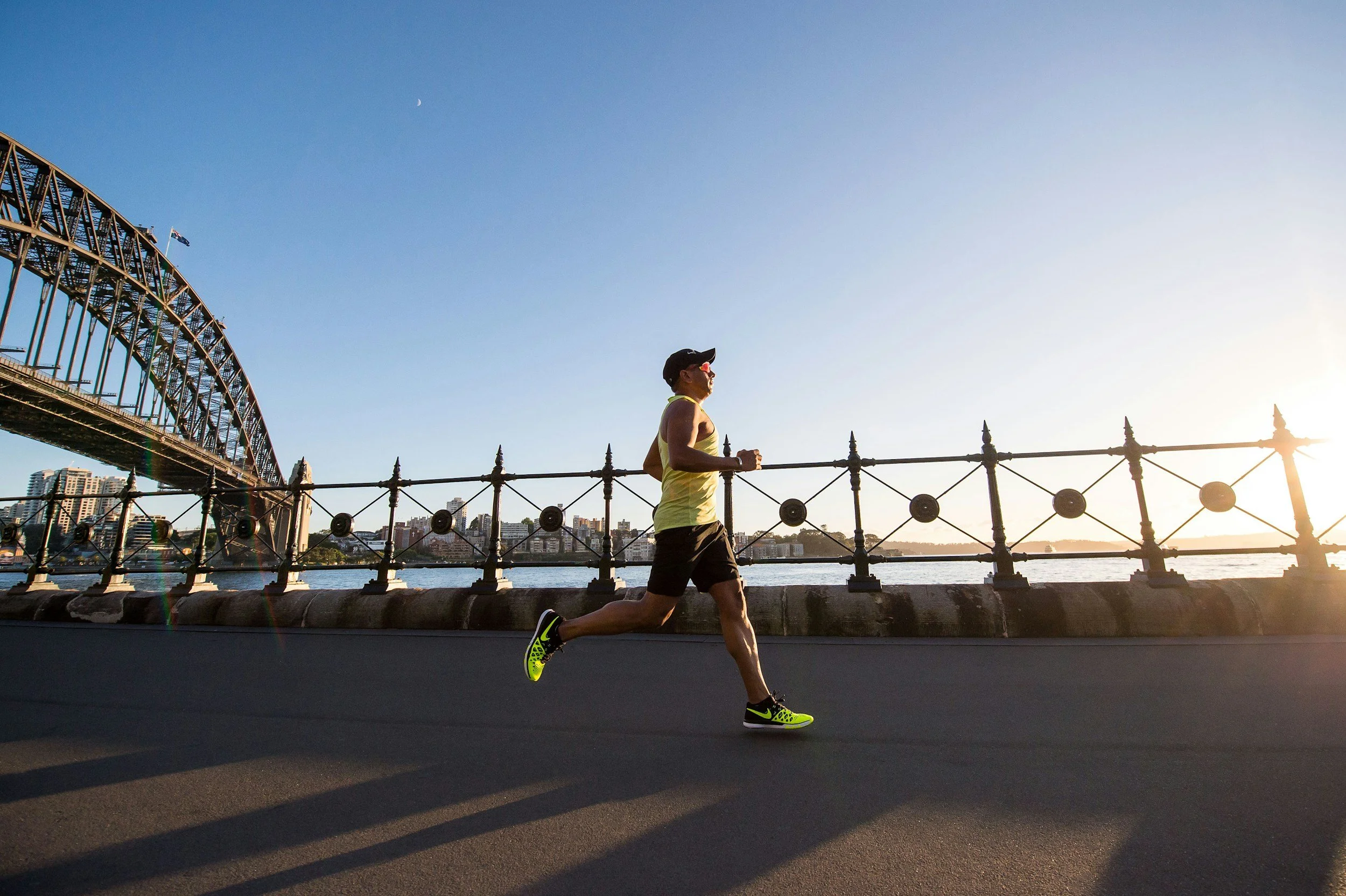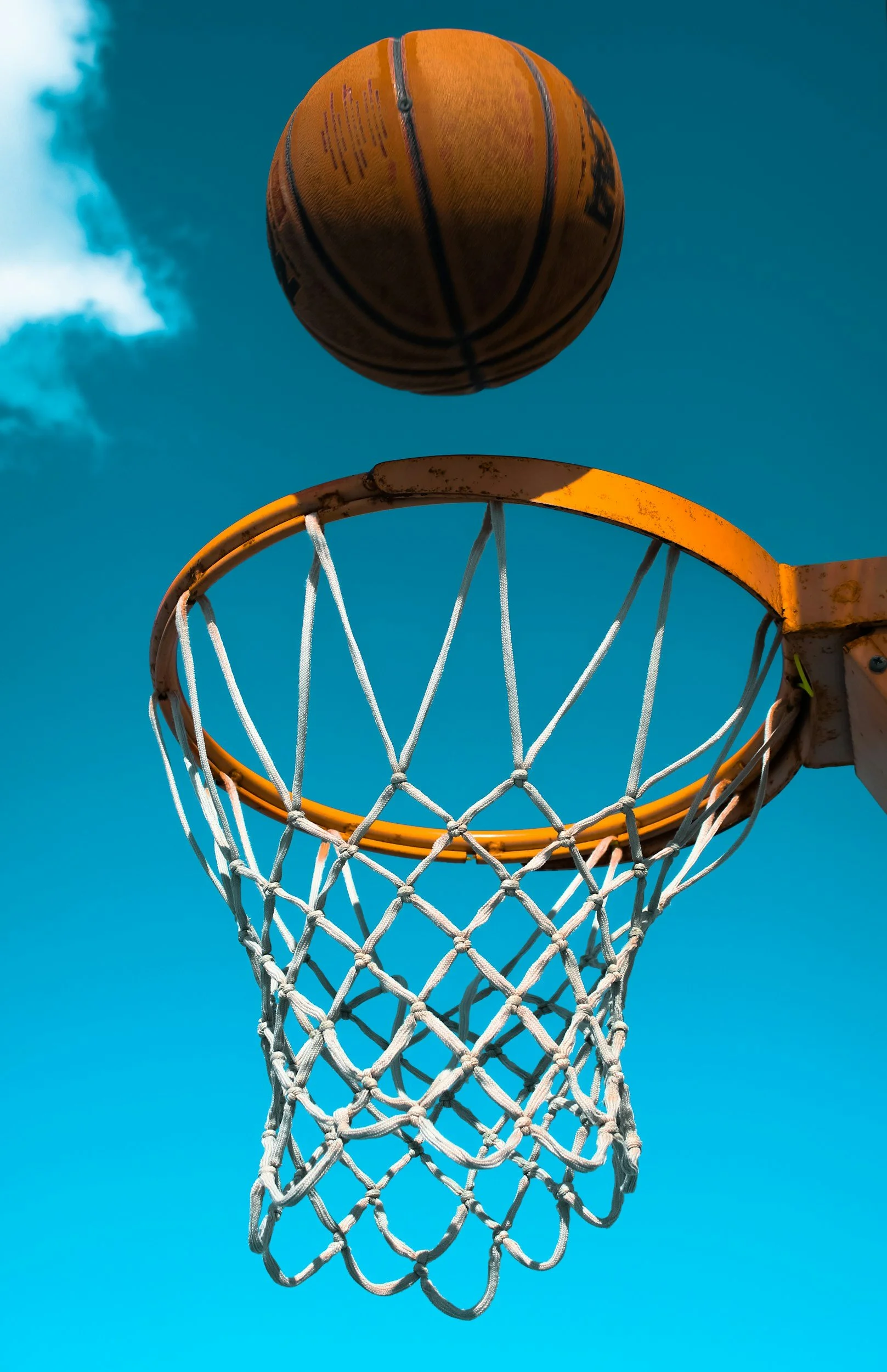Mental Toughness for Distance Runners: 5 Strategies to Perform Strong Under Pressure
Mental toughness for runners isn’t about ignoring pain it’s about responding skillfully to stress and discomfort. In this blog post, I review 5 skills that runners can utilize to improve mental toughness.
Common Mental Blocks in Basketball and How to Overcome Them
Basketball isn’t just a physical game—it’s a mental one. Even top players can struggle with mental blocks that affect their confidence, focus, and decision-making on the court. Maybe you hesitate on a clutch shot, overthink a play, or let one mistake spiral into several more. These moments are normal, but they don’t have to define your performance. By recognizing common mental barriers and using simple, practical strategies to overcome them, you can stay calm under pressure, trust your skills, and play at your best when it matters most.
Why Skipping Workouts Feels Impossible: Understanding Overexercising and Guilt
Taking a rest day can feel impossible if exercise has become a way to cope, control, or escape difficult emotions. Learn why compulsive exercise develops, why rest triggers guilt, and compassionate strategies to regain balance.
Nighttime Binge Eating: What’s Really Going On & How to Cope
Nighttime binge eating isn’t about willpower—it’s your emotions asking for care. Learn to identify underlying feelings, discover what they truly need, and respond with compassionate coping strategies that help you regain control and peace around food.
How to Gain Confidence in Sports: Strategies for Athletes
Confidence isn’t just talent—it’s a skill. Learn how to gain confidence in sports by focusing on your strengths, letting go of fear, and mastering mental preparation.
Dating Someone with an Eating Disorder: What You Should Know
Dating someone with an eating disorder can be challenging, but understanding, empathy, and support make a difference. Learn how to recognize warning signs, prioritize your own self-care, and know when to seek professional guidance.
How to Talk to Your Teen About Food, Body Image, and Confidence
Talking to your teen about food and body image can be challenging — but it’s one of the most powerful ways to build their confidence and prevent disordered eating. Learn how to foster open conversations, model balance, and help your teen develop a healthy relationship with food and their body.
Fueling vs. Restricting: Helping Athletes Find Balance with Nutrition
This blog explores the balance between fueling and restricting in athletes. Learn how proper nutrition supports performance, recovery, and mental health. Discover strategies from a Houston eating disorder therapist to develop a healthy relationship with food and exercise.
Body Image and Self-Worth: Steps Toward Confidence and Recovery
This blog explores the connection between body image, self-worth, and eating disorder recovery. Learn how therapy can help you rebuild confidence, develop self-compassion, and create a healthier relationship with food and your body. Written by a Houston eating disorder therapist, this post offers practical steps toward healing, balance, and lasting self-acceptance.
How Soccer Players Can Overcome Performance Anxiety
Soccer is as much a mental game as it is physical. By building a strong mindset, you can step onto the field with focus, confidence, and trust in your abilities. This blog will give you the tools to manage performance anxiety in soccor to help you thrive both on and off the field.
Understanding Anorexia: Why Being Underweight Isn't the Only Indicator
Many people believe anorexia only affects those who are underweight—but that’s a dangerous myth. In this post, we’ll explore why you can have anorexia without being underweight, the signs to look for, and why early treatment for anorexia nervosa is critical for recovery. Learn the truth and how therapy can help.
Supporting Athletes Through Retirement: 6 Tips for a Healthy Mental Transition
Retiring from sports can trigger identity loss, anxiety, and uncertainty. This blog offers insight and 6 expert-backed tips to support athletes through a healthy mental transition after retirement.
Body Image in Gym Culture: When Fitness Goals Mask Deeper Struggles
This blog explores how the drive for physical perfection can lead to harmful thought patterns, disordered eating, and negative self-image. This post unpacks how body ideals, social media pressure, and performance-based motivation can interfere with true well-being—and how to recognize when your goals may be doing more harm than good. If you’ve ever questioned your relationship with your body, food, or fitness, this post offers insight and support for building a healthier, more compassionate path forward.
Dive into Calm Waters: Mental Preparation Techniques to Enhance Swimmer Performance
Competitive swimming demands more than just physical strength, it requires a focused and resilient mindset. This blog explores essential mental preparation techniques swimmers can use to enhance performance, manage pre-race nerves, and stay mentally sharp throughout training and competition. From visualization and breathing exercises to building confidence and maintaining focus under pressure, these strategies can help swimmers of all levels dive in with clarity, calm, and control.
Binge Eating Disorder vs. Emotional Eating: What’s the Difference?
Binge eating disorder and emotional eating may seem similar, but they’re distinct in important ways. In this blog, we’ll explore the differences between these two eating patterns, the triggers behind them, and how you can address them with effective therapy. Learn actionable strategies for managing overeating and developing a healthier relationship with food.
Mental Toughness for Athletes: How to Develop a Stronger Mindset
Mental toughness is the key to athletic success, helping you stay focused, confident, and resilient under pressure. In this blog, we’ll break down what mental toughness in sports really means and how you can develop it through mental training for athletes. From mastering self-talk to handling adversity, learn actionable strategies to strengthen your mindset and perform at your best.
How to Break the Binge-Purge Cycle: Strategies for Overcoming Bulimia Nervosa
Breaking the binge-purge cycle can be challenging, but with the right strategies, it’s possible to regain control and find balance. In this blog, we explore effective coping skills, mindfulness techniques, and therapeutic approaches to help you break free from harmful patterns and develop a healthier relationship with food and your body.
How to Break the Cycle of Night Time Stress Eating
This blog explores the connection between stress and night eating, offering insights into how stress can trigger late-night cravings. It provides practical strategies to help break the cycle, including tips on managing emotions, checking in with hunger cues, and establishing a calming evening routine. The goal is to help individuals improve their relationship with food and find healthier ways to cope with stress.
Understanding the Symptoms of Anorexia Athletica
Anorexia Athletica is a condition often seen in athletes where the drive for peak physical performance and appearance leads to disordered eating and excessive exercise. This blog explores the physical and psychological signs of Anorexia Athletica, its impact on athletic performance, and the risks associated with the condition. It also outlines recognition strategies, treatment options, and the importance of a supportive environment for recovery.
Mental Toughness in Young Athletes: Building Resilience for Success
Mental toughness is a critical skill for young athletes, helping them overcome challenges, stay focused under pressure, and achieve their full potential. In this blog, we explore the benefits of resilience, effective strategies for fostering mental toughness, and the role of coaches and parents in supporting young athletes' growth. Learn how to create a supportive environment that promotes confidence and peak performance!



















